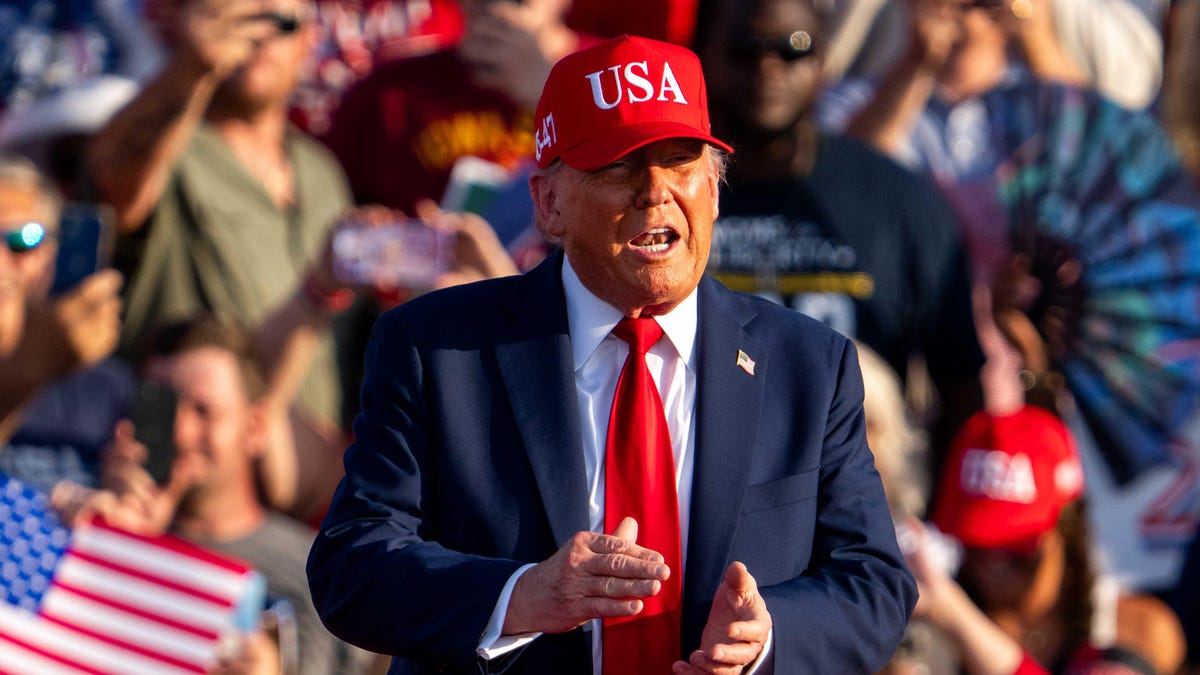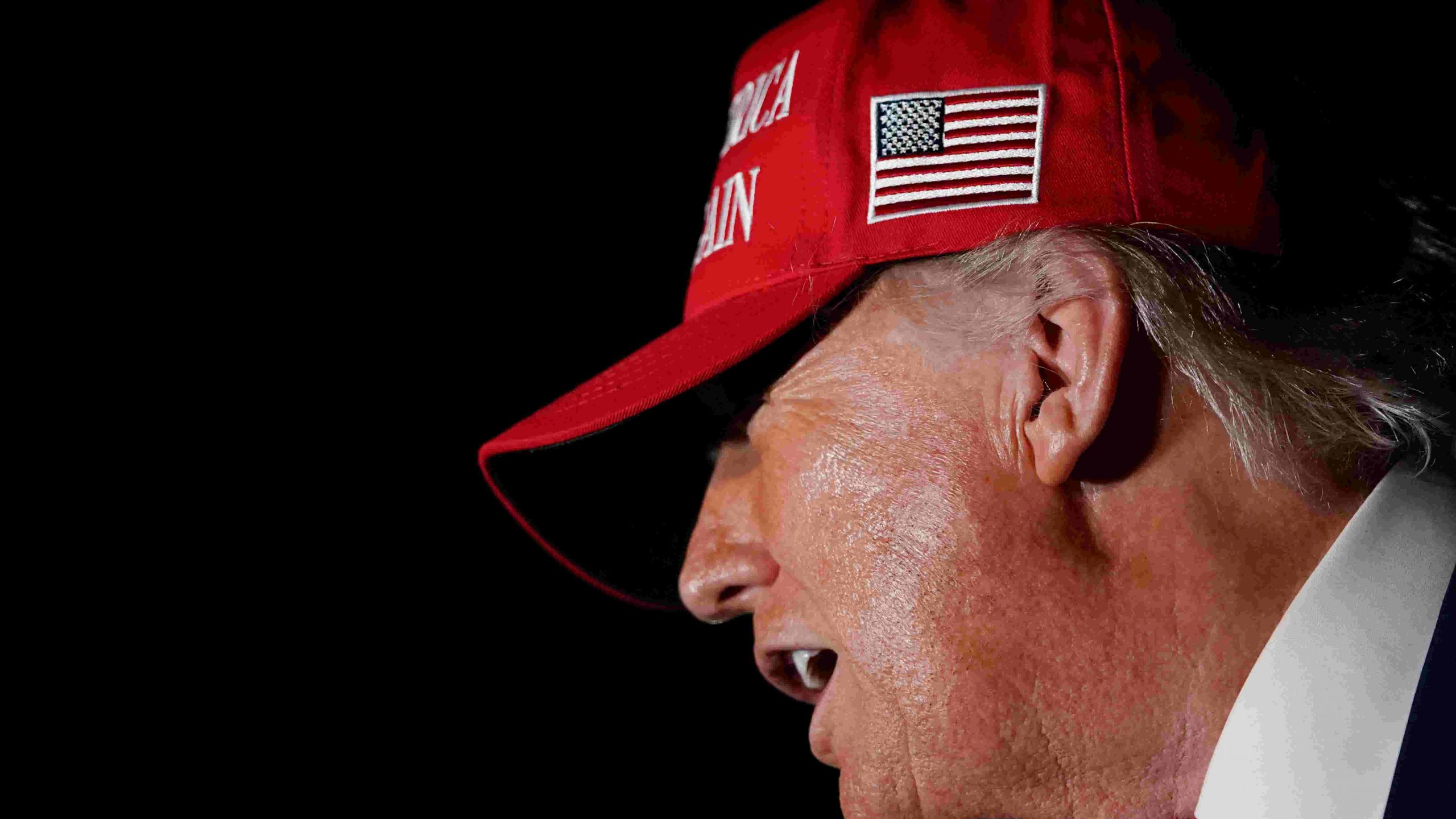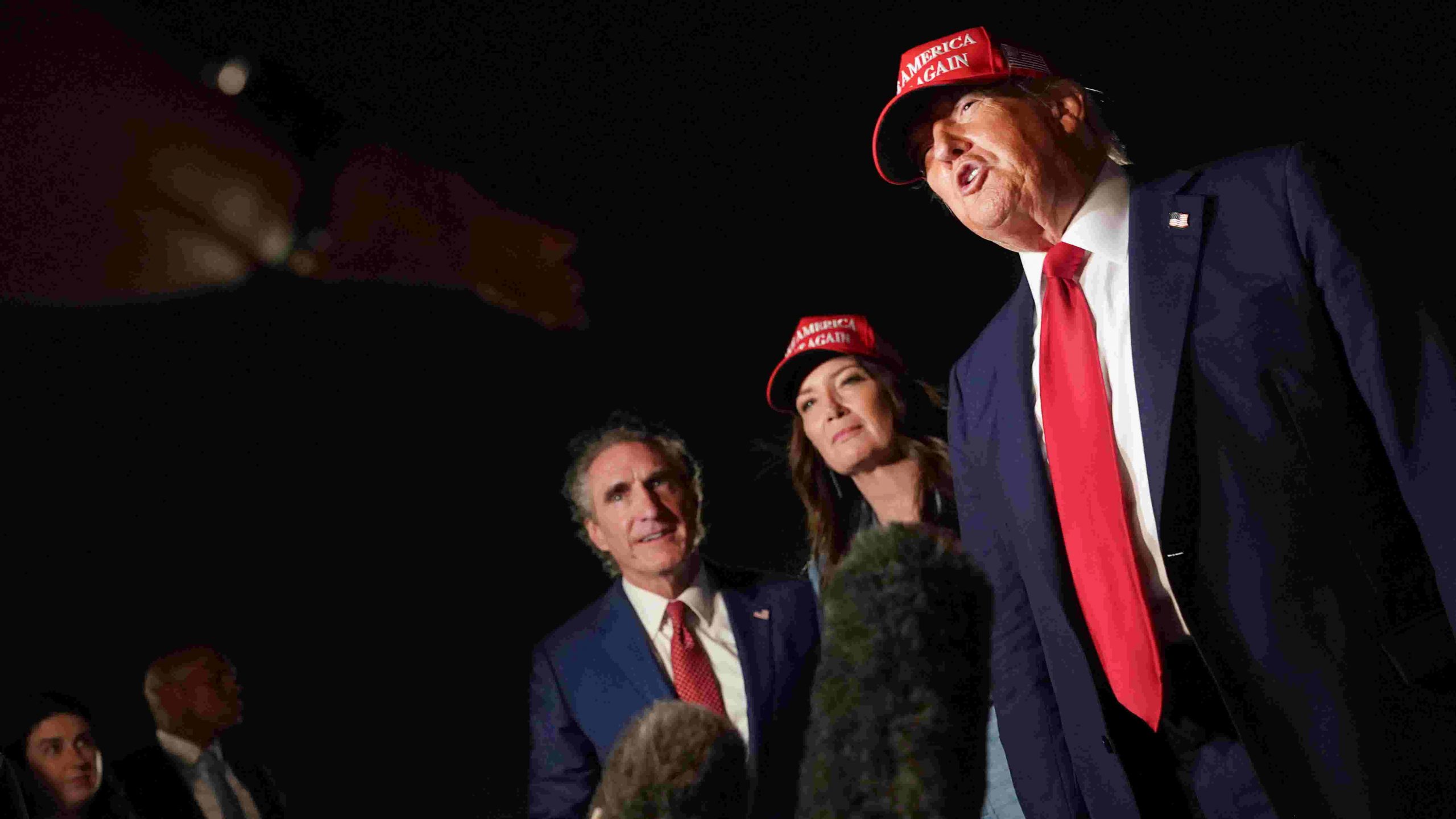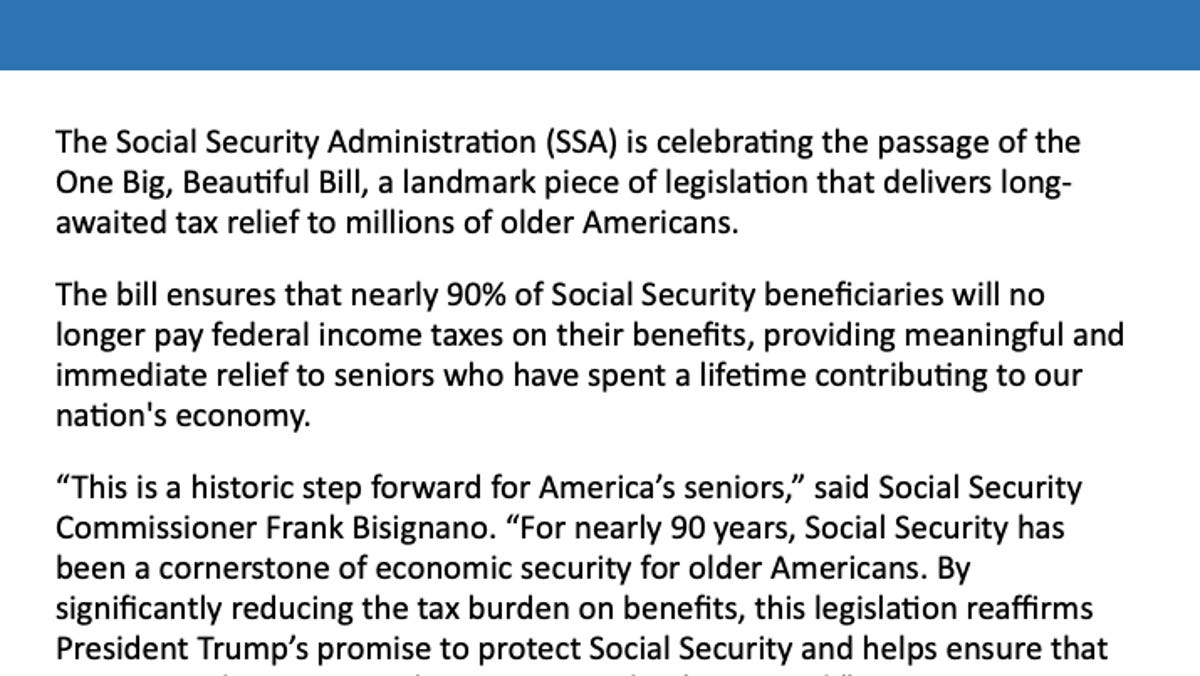The president made the remark at a rally launching his yearlong celebration of America’s 250th birthday.
Trump refers to bankers as ‘Shylocks’ during Iowa event
President Donald Trump is sparking reactions after referencing bankers as “Shylocks” during an event in Iowa.
WASHINGTON – President Donald Trump described some bankers as “shylocks,” a term widely seen as an antisemitic slur, at a July 3 Iowa rally kicking off his yearlong celebration of America’s 250th birthday.
When asked by reporters about it later that evening, Trump said he has “never heard that” the word is considered antisemitic.
“The meaning of Shylock is somebody that’s a money lender at high rates,” Trump said after disembarking from Air Force One. “You view it differently. I’ve never heard that.”
Anti-bigotry groups were quick to condemn Trump, saying the president has a long history of making antisemitic remarks and should have known better.
“Shylock is among the most quintessential antisemitic stereotypes,” said Amy Spitalnick, CEO of the nonpartisan Jewish Council for Public Affairs and an expert on antisemitism and extremism.
“This is not an accident,” Spitalnick said in a post on X. “It follows years in which Trump has normalized antisemitic tropes and conspiracy theories — and it’s deeply dangerous.”
The Anti-Defamation League, which combats antisemitism and racism worldwide, said the term “evokes a centuries-old antisemitic trope about Jews and greed that is extremely offensive and dangerous.”
“President Trump’s use of the term is very troubling and irresponsible,” the ADL said, also in a post on X. “It underscores how lies and conspiracies about Jews remain deeply entrenched in our country. Words from our leaders matter and we expect more from the President of the United States.”
‘Shylocks and bad people’ who ‘destroyed a lot of families’
Trump’s remark came at a campaign-style rally speech at the Iowa State Fairgrounds in Des Moines for a “Salute to America Celebration.” Much of his speech celebrated the passage of his massive budget reconciliation bill earlier in the day.
“No death tax. No estate tax. No going to the banks and borrowing from, in some cases, a fine banker — and in some cases, shylocks and bad people… they destroyed a lot of families,” Trump said.
“But we did the opposite,” Trump said, before describing the budget bill passed along party lines in the House and Senate.
The term Shylock dates back centuries. In William Shakespeare’s “The Merchant of Venice,” the main antagonist was a character named Shylock, a Venetian Jewish moneylender portrayed as greedy, ruthless and charging high interest rates on loans.
Joe Biden used the term too, then apologized
Then-Vice President Joe Biden also used the term in 2014, describing unscrupulous bankers catering to American troops overseas as “these Shylocks who took advantage of these women and men.”
“Shylock represents the medieval stereotype about Jews and remains an offensive characterization to this day,” Abraham Foxman, the ADL’s national director said at the time. “The Vice President should have been more careful.”
Foxman later announced that Biden had reached out to him by phone to apologize.
“Not only has he been a stalwart against anti-Semitism and bigotry, but he has the courage and forthrightness to admit a mistake and use it as an opportunity to learn and to teach others about the harmful effects of stereotypes,” Foxman said of Biden.
“Clearly there was no ill-intent here,” Foxman added, “but Joe and I agreed that perhaps he needs to bone up on his Shakespeare.”
Biden also issued a public apology.
“Abe Foxman has been a friend and advisor of mine for a long time,” Biden said in a statement. “He’s correct, it was a poor choice of words.”
Trump’s history of remarks called antisemitic
Trump has portrayed himself as a staunch advocate for Jews.
Since retaking office, he has led an aggressive campaign to root out antisemitism at Harvard and other high-profile American universities – a move that some critics said curbs freedom of speech by those criticizing Israel for its war in Gaza.
Trump has a long history of making statements that Jewish leaders, historians and civil rights organizations have interpreted as reinforcing antisemitic stereotypes, including jokes about being cheap and aggressive in business and accusations of them being primarily loyal to Israel. He also has associated with known antisemites.
In 2015, he told the Republican Jewish Coalition, “You just like me because my daughter happens to be Jewish,” and “I’m a negotiator like you folks; we’re negotiators.”
During his first campaign for president in 2016, Trump tweeted an image of Democratic rival Hillary Clinton superimposed on dollar bills with a six-pointed star, widely interpreted as a Star of David. The ADL called it “blatantly antisemitic.”
Trump also has said any Jew who votes for Democratic “hates their religion” and “should have their head examined” because he has been so supporitive of Israel, which he has referred to as “your country” when addressing a Jewish audience.
And in November 2022, Trump hosted far-right extremist and Holocaust denier Nick Fuentes – and Ye, the rapper formerly known as Kanye West – at his Mar‑a‑Lago club.
Both West and Fuentes were avid supporters of Trump who repeatedly had made antisemitic remarks. Fuentes in particular is a prominent figure among the far-right, peddling white nationalist ideas and openly promoting antisemitic and racist rhetoric.
“Bigotry, hate, and antisemitism have absolutely no place in America – including at Mar-A-Lago,” Biden administration White House spokesman Andrew Bates told CNN in a statement. “Holocaust denial is repugnant and dangerous, and it must be forcefully condemned.”
In response to heavy criticism, Trump said West “called me to have dinner at Mar-a-Lago. Shortly thereafter, he unexpectedly showed up with three of his friends, whom I knew nothing about.”









